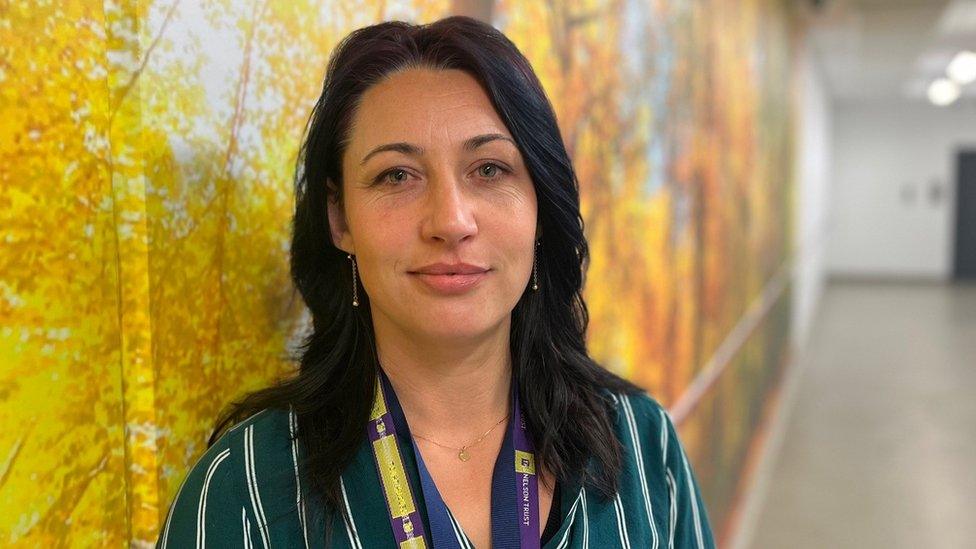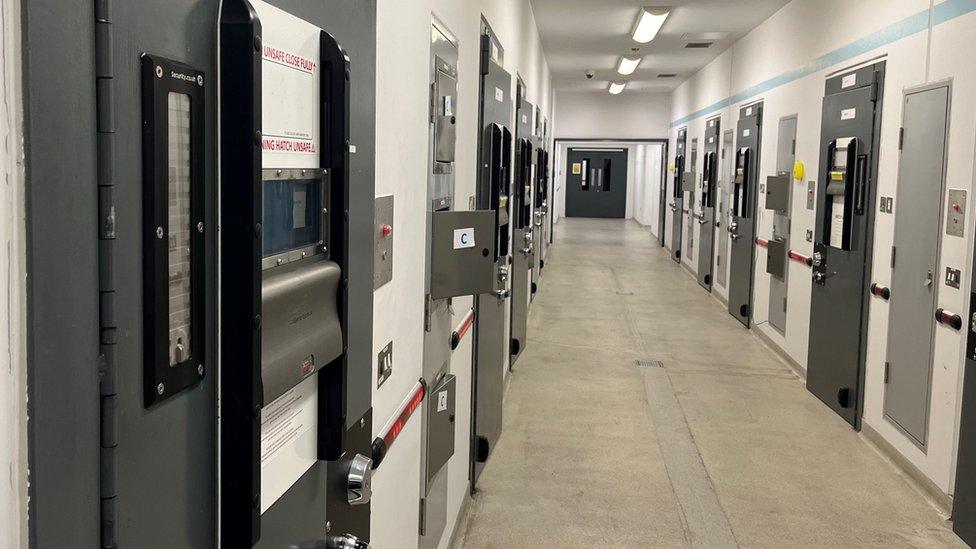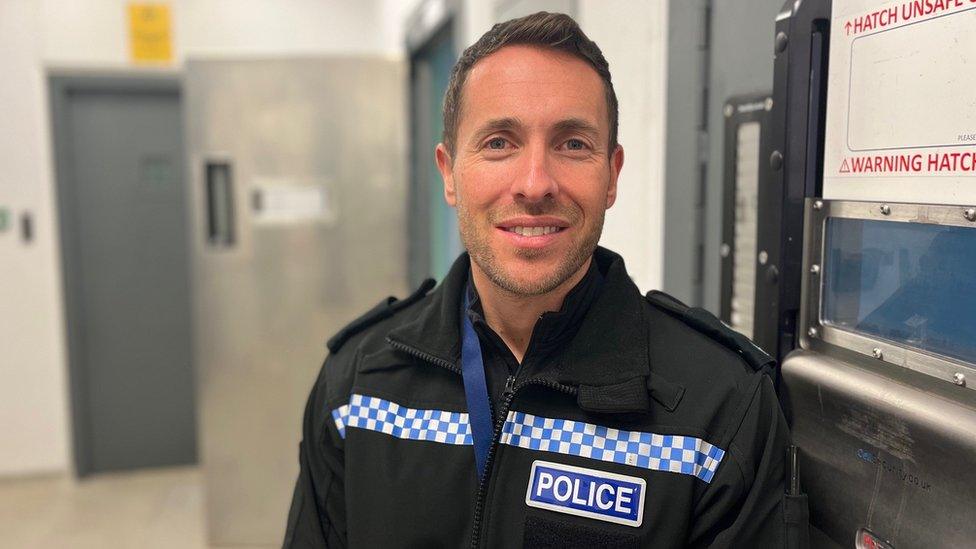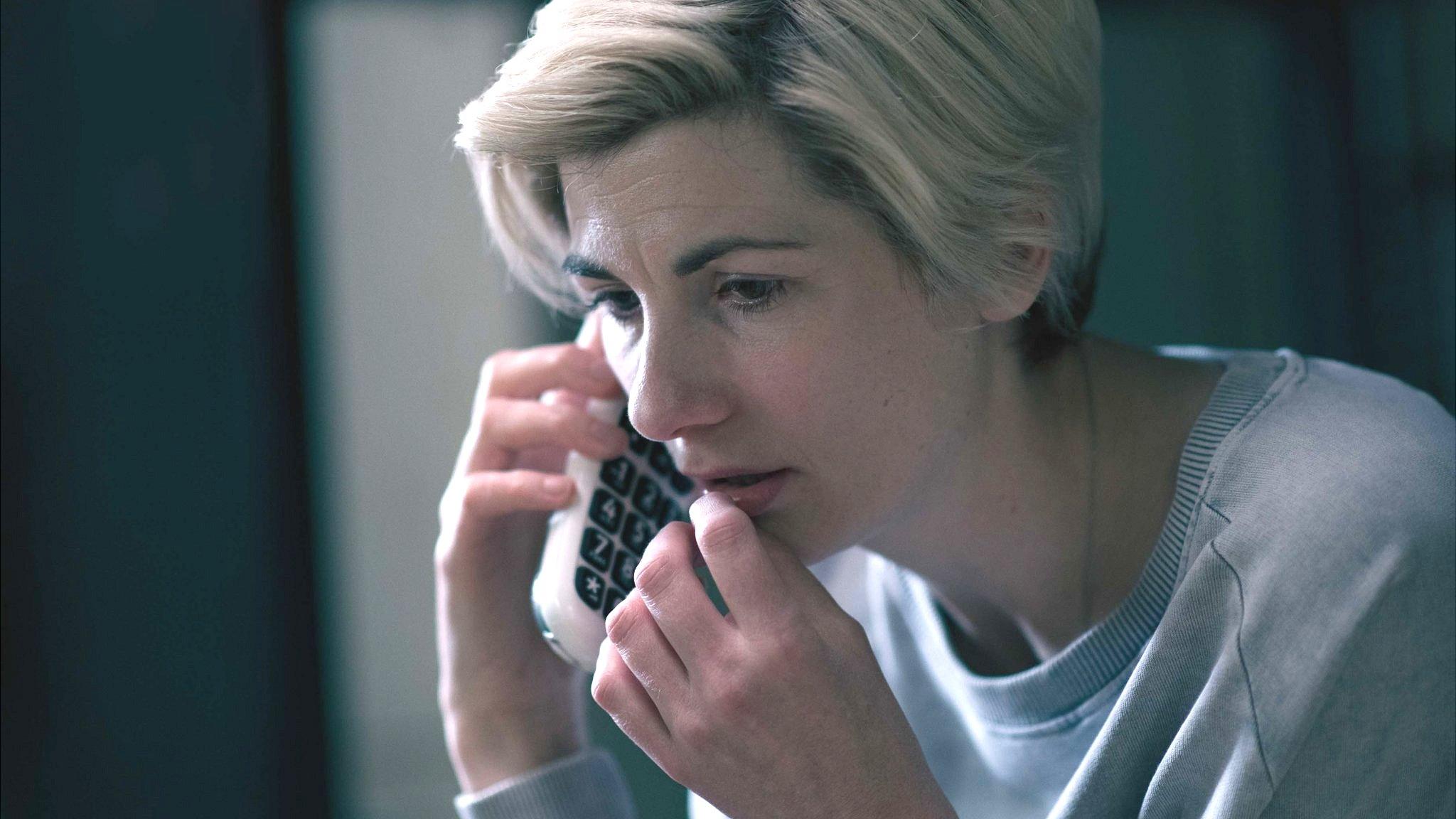Somerset women in custody offered alternative to court
- Published

Kerenza Robinson-Barton says she 'loves' her job supporting women
Women in Somerset who've been arrested for the first time for low-level crime are being offered an alternative to going to court.
Avon and Somerset Police is referring some women, who've admitted their offending, to Project SHE which is run by the Nelson Trust.
One of the women, who we are calling Rosie, was initially questioned alongside an ex-partner.
Police quickly recognised the 19-year-old needed a different type of help.
When 'Rosie' met her Project SHE support worker, Kerenza Robinson-Barton, she was ready to accept any help "that would help me move forward more positively".
"She [Ms Robinson-Barton] started talking to me but not like a therapist or someone who was trying to undermine me - she was like a friend, just talking to me like another human being," said Rosie.
"I bawled my eyes out. It opened my eyes up that actually there are people there to help you and they're not against you."
SHE stands for 'support, help and empower'. Rosie said it helped her stop believing that everyone was against and thought she was "a bad person".

Women who are brought into custody can be referred into Project SHE
"Kerenza gave me the confidence to get rid of my old job - this new job now I absolutely love.
"It's like a whole new doorway - I have a new partner, we have a dog now; it's just all these things I didn't know were possible.
"If I wasn't given help by the police and I hadn't accepted help, I wouldn't have had any of this," said Rosie.
'Reduces reoffending'
Inspector Joe Piscina oversees Bridgwater police custody suite where women are identified for referral to Project SHE.
He said referrals to the scheme "depend on the offence" and there are conditions relating to rehabilitation attached.
"It can be offences along the lines of theft, low level violence. Ten years ago a theft from a shop might be 'we'll charge them, send them to court' but Project SHE looks at the reasons why," he said.
If the police refer to Project SHE the conditions of the caution are attending a set number of sessions with a support worker and engaging with their advice.
"It could be for example they're stealing a sandwich because they're not given any money from a previous relationship or a situation they find themselves in," said Inspector Piscina.
He said he had "no doubt it [SHE] reduces reoffending" and has also reduced the impact on the wider community and the criminal justice system.

Inspector Joe Piscina has 'no doubt' the scheme reduces reoffending
Ms Robinson-Barton said the project works because it identifies women who have only just come into contact with criminal justice system.
It diverts them down a more positive path before they end up down a spiral which could see them end up in prison.
"We can look in a holistic way at 'what in your life has led you here and what support do you need to try and prevent reoffending?'" said Ms Robinson-Barton.
'Very rewarding'
She recalls a woman who had been given a conditional caution, driven to crime when her benefits had been "messed up" repeatedly.
"And so she robbed coffee and milk from a supermarket and got arrested," said Ms Robinson-Barton.
"Rather than going to court for that, because she freely admitted 'yes it was wrong for me to do that' she got a conditional caution.
"We looked at her debts and got her referred to financial support services. We got her involved in the community with some food parcels, and we looked at budgeting and ways to manage money better.
"Her benefits also got sorted but that doesn't affect the fact that she now has a seven-year criminal record," said Ms Robinson-Barton.
"I love what I do, I find it very rewarding. Sometimes it's very difficult hearing stories of such sadness but I feel like I help people every day."

Follow BBC West on Facebook, external, X, external and Instagram, external. Send your story ideas to: bristol@bbc.co.uk , external
Related topics
- Published29 November 2023
- Published19 November 2023
